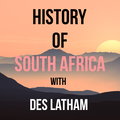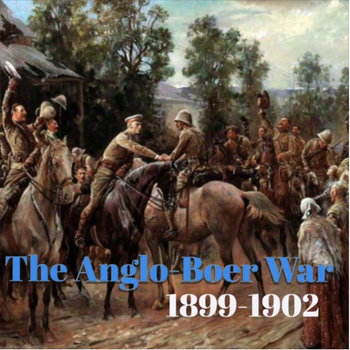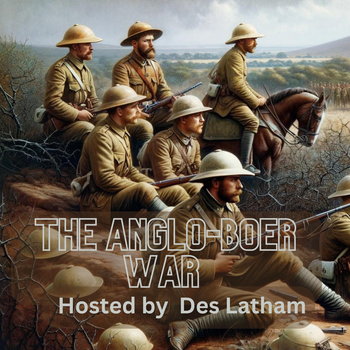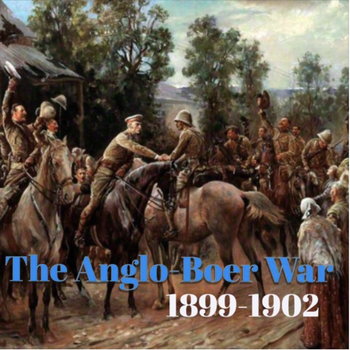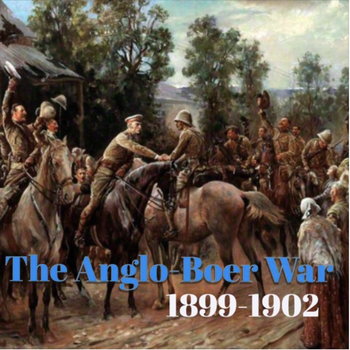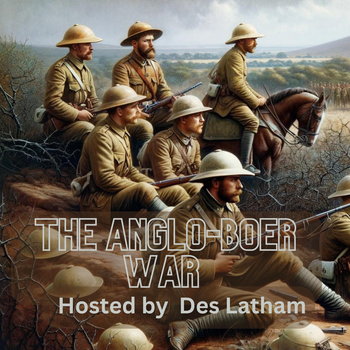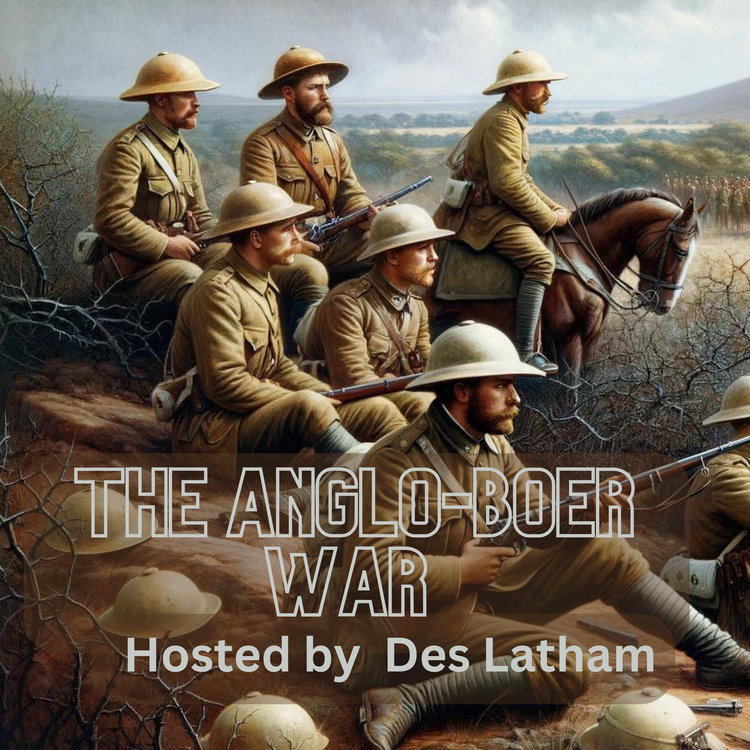
Episode 125 - A sleepy blockhouse stymies Kitchener’s New Model Drive & Jan Smuts leaves Kakamas
Loading player...
February 1902 is full of surprises, not least for Lord Kitchener who has designed his great Drives which are similar to hunting Grouse on the moors of England. Lines of men walk side by side, twenty yards apart, driving the Boers before them until they are squashed against the blockhouses and posts where they are forced to surrender in droves.
Well that is the theory. Sometimes is worked, sometimes not. In the case we’ll hear today where Kitchener’s second major drive was launched in the Free State, the theory and the practice were out of kilter.
Because Major Rawlinson and his superiors were after the crafty fox, General Christiaan de Wet and President Steyn. Should they capture these two, the Boer war would surely splutter to a halt. De Wet and General Jan Smuts, along with General de la Rey were the symbols of freedom for the Boers, and it was vital for the British to bring them to book.
In the Eastern Transvaal, General Louis Botha had fought his last battle as we heard in January, and was now making preparations for a shift in strategy – and region. He had decided that his commando would serve no purpose remaining in the Transvaal and he was headed to Northern Natal where he believed he would have more success.
Lord Kitchener had an epiphany. Rawlinson had had one too – but far earlier. Other British commanders had similar moments when the phrase Eureka surely must have escaped their lips. The British drives had been designed as day-time operations, at night the thousands of men would stop and make fires for supper, which is when the Boers would slip between the clearly demarcated fire areas of sleeping English and make their escape.
The epiphany was a set of orders that altered how the British army would deal tactically with their enemy - which they pretty much use to this day. In fact, when I was a soldier, we used some of the tactics which the Americans also employed in Vietnam.
In a nutshell, it is understanding that owning the night is essential in any war. You control the darkness, you control the coming battle. When walking patrol or moving a group of men of whatever size, one of the most important things to do before the sun sets is to confuse the enemy by pretending to be in a place you are not.
Well that is the theory. Sometimes is worked, sometimes not. In the case we’ll hear today where Kitchener’s second major drive was launched in the Free State, the theory and the practice were out of kilter.
Because Major Rawlinson and his superiors were after the crafty fox, General Christiaan de Wet and President Steyn. Should they capture these two, the Boer war would surely splutter to a halt. De Wet and General Jan Smuts, along with General de la Rey were the symbols of freedom for the Boers, and it was vital for the British to bring them to book.
In the Eastern Transvaal, General Louis Botha had fought his last battle as we heard in January, and was now making preparations for a shift in strategy – and region. He had decided that his commando would serve no purpose remaining in the Transvaal and he was headed to Northern Natal where he believed he would have more success.
Lord Kitchener had an epiphany. Rawlinson had had one too – but far earlier. Other British commanders had similar moments when the phrase Eureka surely must have escaped their lips. The British drives had been designed as day-time operations, at night the thousands of men would stop and make fires for supper, which is when the Boers would slip between the clearly demarcated fire areas of sleeping English and make their escape.
The epiphany was a set of orders that altered how the British army would deal tactically with their enemy - which they pretty much use to this day. In fact, when I was a soldier, we used some of the tactics which the Americans also employed in Vietnam.
In a nutshell, it is understanding that owning the night is essential in any war. You control the darkness, you control the coming battle. When walking patrol or moving a group of men of whatever size, one of the most important things to do before the sun sets is to confuse the enemy by pretending to be in a place you are not.
